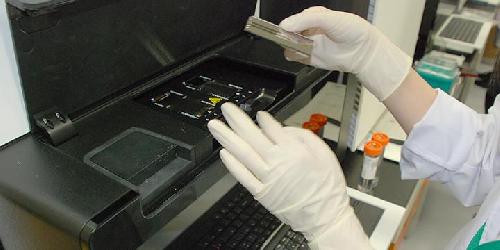A research group at Tohoku Medical Megabank Organization (ToMMo) has successfully constructed a Japanese population reference panel (1KJPN), from the genome information of 1,070 individuals who had participated in the cohort studies*1 of the Tohoku Medical Megabank Project.
ToMMo identified through this high-coverage sequencing (32.4 × on average), 21.2 million, including 12 million novel, single-nucleotide variants (SNVs) *2 at an estimated false discovery rate of
ToMMo also catalogued structural variants, including 3.4 million insertions and deletions, and 25,923 genic copy-number variants. The 1KJPN was effective for imputing genotypes of the Japanese population genome wide.

The data demonstrates the value of high-coverage sequencing for constructing population-specific variant panels, which covers 99.0% SNVs of minor allele frequency ?0.1%, and its value for identifying causal rare variants of complex human disease phenotypes in genetic association studies.
This research has produced a basic analysis tool for the large-scale identification and study of the genes related to the physical constitution and diseases that are peculiar to the Japanese. It has so far yielded important results that can accelerate the research of personalized healthcare and medicine.
The results of this research were released in the online version of Nature Communications on August 21, 2015.
Background
Tohoku University Tohoku Medical Megabank Organization (known as ToMMo) has been working in cooperation with Iwate Medical University on the Tohoku Medical Megabank Project. It is part of the universities' contribution towards reconstruction of the region, following the Great East Japan Earthquake in 2011.
Since 2013, the two universities have been conducting cohort studies, which include some150,000 community residents in Miyagi and Iwate prefectures.






Comments